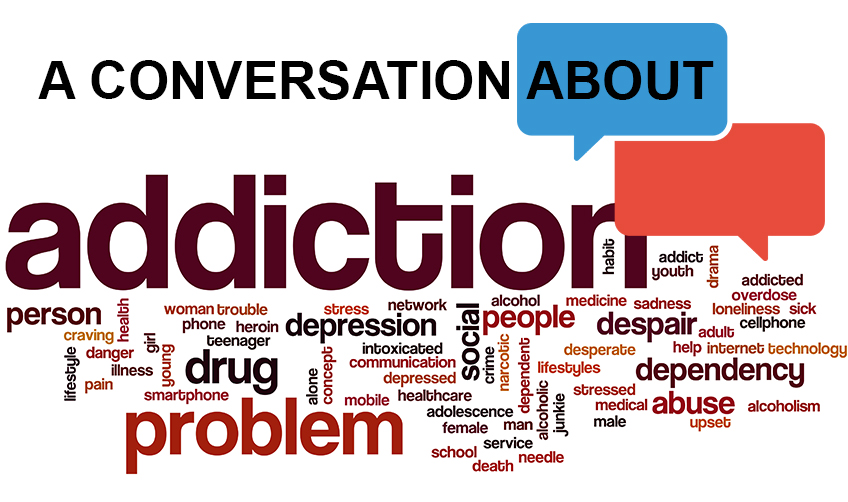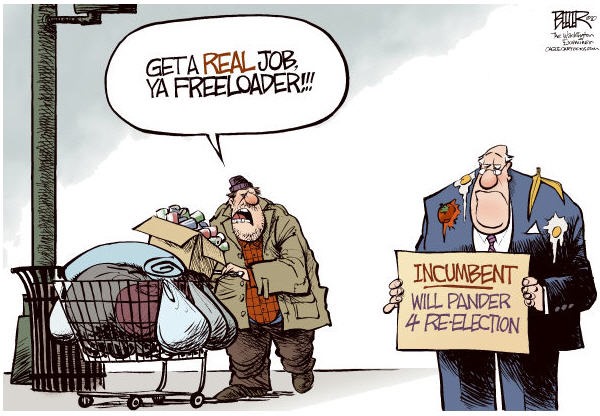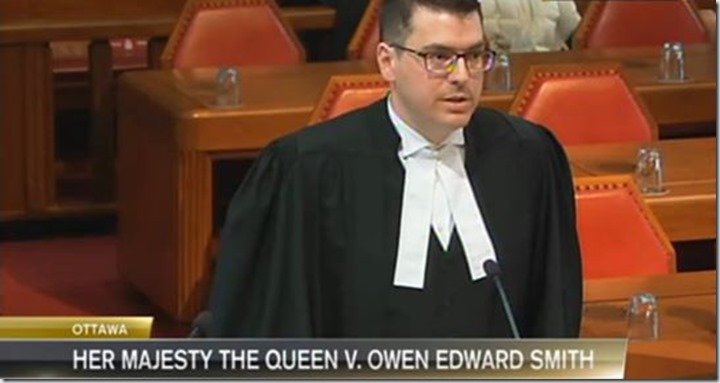Another Look at the Subject
Judith Stamps
The conversation below began as part of a research project. I was checking in which
war morphine was first used. The American Civil War, it turns out, is the correct
answer. It was also widely use in WWI and WWII. But I was struck by an odd fact.
Every article I saw emphasized what a problem this drug caused, as so many
soldiers returning from those wars struggled thereafter with morphine addiction.
Yet if you Google the Vietnam War and extensive use of opiates by soldiers, you
learn that they had a relatively easy time kicking the habit. The official reason is the
change of their environment after the war was over. But that does not help us to
understand the earlier war vets’ experiences. So I put this question to the cannabis
activist community. All of the commentators make excellent points. Any thoughts?
——————-
On the matter of addiction it has been noted that Vietnam vets who had taken opioids regularly during the war, seemed easily able to quit once back home. But there is also this. Wounded soldiers in the American Civil War, in WWI, and WWII who had been given morphine for their pain, came back, in large numbers, seriously addicted. And it remained a problem. Further, many current opioid addicts also began the drug as a prescription for pain. What is the difference?
Comments
Michelle Sikora There is no difference.
Judith Stamps I think there has to be a difference if the outcome was different.
Michelle Sikora Was it really though. I know a few Vietnam vets who have addiction issues. To me addiction is addiction. The substance may not be the same but the issues are.
Judith Stamps @Michelle Sikora I’m thinking about a video that has been made the rounds, which shows Vietnam vets as a kind of unintended social experiment. Its message is that addiction is caused by social distress. I’m wondering if people who take opioids for physical pain wind up with different kinds of problems with the drugs.
Michelle Sikora Doug was on opioids for 20+ years, 5 of those on Oxy. My ex husband had a crack addiction. Prior to his crack addiction he was addicted to lifesavers ( the candy). The issues were the same in both. The difference with Doug was he was angry for what the system did to him, which gave him more power to be opioid free. Nevertheless being married to 2 different men with different substance use issues, really showed addiction is addiction whether it be a substance or gambling.
Steve Elliott My cousin was still addicted when he returned from ‘Nam… he ended up committing suicide on his mother’s doorstep because of his addiction issues
Judith Stamps @Steve Elliott it would be useful to know what proportion of those vets maintained an opioid addiction after they returned. According to some addiction theorists, very few. But maybe that is not accurate.
Martha Mcintosh Interesting question, and I do not know the answer. My first thought was those coming back from Vietnam, their situation changed and the drugs were not available, but that would probably be the same for other vets coming home. My father was a WW2 vet, , he was wounded and set back to the front lines, he could have had addictions, but he was tuff, he probably would have just sucked it up. Compared to marching across Europe for 5 years getting shot at and killing people he personally had nothing against, after having been a child slave from the moment he could walk, opiate withdrawal would be a walk in the park.
Judith Stamps That is an interesting answer. The gruesome cold and starvation is a factor missing from the Vietnam experience.
Herb S Goode The hardships, weather and starvation were all part of the WWI AND II experience. Vietnam was a walk in the park compared to those two wars. And the American Civil War had brother, father, uncle, cousin and many other family members affected by this war, much more traumatic than any other war since, not to mention the racial strife happening at the time.
Judith Stamps @Herb S Goode thanks for the input.
Christopher Lawson The difference is that in Viet Nam most soldiers also got introduced to cannabis (if they had not started with it already). Regular use of cannabis makes one seven times more likely to beat opioid addiction. WWI and WWII and Civil War vets mostly did not use cannabis and they found opioid addictions hard to beat.
Judith Stamps Good point, @Christopher Lawson. I hadn’t even thought of that. Seems obvious now.
Daniel Boughen I agree, there is a lot of documentation and film, showing Vietnam vets shotgunning weed in the combat field.
Judith Stamps @Daniel Boughen if you Google the subject, every commentator claims that the reason for relatively low levels of addiction after the Vietnam war was environmental. The soldiers were no longer in the war environment, so their stress disappeared. The same thing doesn’t seem to have happened post other wars, though. Nor does the environmental theory tell us anything about the present problem caused by irresponsible Pharma actors and doctors. So maybe cannabis is an important part of the answer?
Teresa Berry It seems that that might just be the case. I think you’ve really put your finger on something here Judith.
Judith Stamps @Teresa Berry not me. Check out Christopher Lawson’s comment above. He made the connection. But it is a good point.
Daniel Boughen We have the benefit of a longer hindsight on Vietnam too. It occurs to me that if they were introduced to cannabis in Vietnam, that they would have continued its use after arriving home. What we realize now wasn’t apparent in 1969, we now know it helps addiction to opiates, they would have been treating themselves without realizing it. groovy…
Judith Stamps @Daniel Boughen besides, in cannabis history, these vets are heroes, as some brought seeds home, and established themselves as competent growers. They added to our knowledge of cultivation. Probably they didn’t know the good it was doing them.
Daniel Boughen @Judith Stamps You’re damn right about that.
Judith Stamps @Daniel Boughen you can say that again.
Judith Stamps So let this be our new theory of why Vietnam vets fared better with their opioid problem than have soldiers in previous wars. They had good weed available.
Blair Pilling They knew.
Daniel Boughen they will say it’s “only anecdotal” and not evidence.
Daniel Boughen certainly not enough evidence to release the hounds…
Judith Stamps @Daniel Boughen well the currently official story, that environment is the main cause, is just as anecdotal.
Daniel Boughen yep, its our anecdote against theirs.
Judith Stamps @Daniel Boughen ours does a better job of making sense of what happened in other wars with opioids. So it has higher explanatory value.
Daniel Boughen I agree completely. It has a coherent logic that is lacking in the government’s assessment of cause and effect. 🙂
Blair Pilling From the stories I have listened to, Cannabis was a big part of coping over in Vietnam, as well as back in the US after. The war disillusioned many people who were there, and how disrespectfully vets were treated after they came home was unlike any returning soldiers in US history. Many found their way to the counter culture, and I am sure that you will find that their influence on Cannabis journey towards legalization has been heavily influenced by their experience.
Daniel Boughen It’s fair to say that they may have founded the counter-culture, due in part to their experiences as the unwilling aggressor, as some sort of penance.
Judith Stamps @Blair Pilling because there was a counterculture there to join. There was no such thing for other soldiers in other wars, perhaps. So the counterculture, in part, saved the vets from addiction? Using cannabis? Great theory!
Daniel Boughen great conversation. Its a pandora’s box once you open it though. lol
Blair Pilling Not really a theory @Judith , I spent 20 years down in the USA, and was deeply involved in the culture.
Judith Stamps @Daniel Boughen I do not think this subject has been dealt with adequately. But yes, it is big.
Daniel Boughen @Blair Pilling so does my theory that they founded the counter-culture hold water for you?
Judith Stamps @Daniel Boughen the counterculture started in part with Allen Ginsberg and Lenny Bruce et al. and the new scene on the West Coast beginning in 1964.
Daniel Boughen Fair enough, thanks, @Judith Stamps. I was 4 at the time. lol
Daniel Boughen but a contributing group for sure. I feel their contribution to awareness needs to be recognized.
Blair Pilling @Daniel, I would say that the skill set that the Vets brought home really helped with the guerilla growing that exploded in the 70’s, so as it pertains to Cannabis, there was definitely an influence, but the counter culture really got going during the protests to the war, which really began in the early ’60’s.
Judith Stamps @Daniel Boughen but you point in the right direction. Marchers for peace, and draft dodgers were an important part of the counterculture.
Daniel Boughen There was another group, too. some of us too young to be involved in the conflict at the time, but we were watching what happened, and admired our older siblings for their courage to step up in the sixties.
It left an imprint on us, and we went silent for the following decade, while we struggled thru the 80’s, and 90s. With the turn of the century and the millennia, some of them are reawakening, and reasserting the message to millennials from behind the scenes and cheering the young people on.
Daniel Boughen My older siblings feel guilty about introducing me to weed. Its such a shame they can’t feel how grateful I am. 🙂
Judith Stamps @Daniel Boughen they don’t know you very well then.
Daniel Boughen lol no, they do not. 🙂
David Malmo-Levine Vietnam vets medicated to reduce the pain of participating in mass murder. When they stopped the killing, they no longer needed the medicine.
Judith Stamps But @David Malmo-Levine we started with the fact that vets in the American Civil War, WWI and WWII, who had been taking morphine, came back seriously addicted. They had been killing too. So this discussion compares these situations.
David Malmo-Levine Arguably those other wars had elements of defense against aggression. Vietnam wasn’t invading anyone.
Judith Stamps @David Malmo-Levine I think that made soldiers in the other wars feel more that they were doing the right thing, and may be part of the answer. I’m just questioning the official story on opioids and Vietnam vets.
David Malmo-Levine Most of the 2 million dead Vietnamese never held a weapon – it was mostly murdering of civilians: https://en.m.wikipedia.org/wiki/Free-fire_zone
Free-fire zone – Wikipedia
EN.WIKIPEDIA.ORG
Judith Stamps @David Malmo-Levine, So that should have made it even harder for Vietnam vets to get off hard drugs.
Daniel Boughen The psychological state of returning soldiers is an important factor to the foundation of the counter culture. Cause and effect of these factors isn’t always well tracked.
Judith Stamps @Daniel Boughen right. The of course, there was that wonderful music heard by soldiers and draft dodgers alike. As in For What It’s Worth, and so on. That may have helped.
Daniel Boughen Stop, wait, whats that sound? Everybody look whats goin’ down.
Judith Stamps That’s the one! Question: Why did Vietnam vets have a relatively easy time ditching opioids? Answer: They had cannabis, the counterculture, and mind blowing music.
Judith Stamps And let’s not forget the invention of the ‘wah wah pedal’ in 1966, featured in the opening chords to For What It’s Worth. A very soothing sound effect, enough to make you forget your worries.
Daniel Boughen Jimmy Hendrix soothed our savage hearts.
Judith Stamps @Daniel Boughen even as watching him made our teeth hurt.
Christopher Lawson It is a pleasure to see everyone agreeing with my logic regarding cannabis being the big advantage for the Viet Nam vets in beating addictions to opioids. This was the obvious key factor in the equation. Addiction studies have confirmed the link between cannabis use and success rates versus addiction. The studies concerning post traumatic stress disorder being greatly helped with cannabis provide further support to my thesis. (MOST opiate addiction stems from inappropriate attempts at coping with post-traumatic stress.)
Judith Stamps I think I’ll see if @Owen Smith would like to publish this conversation as a blog.
Michelle Sikora I’ve been thinking about this. What about the vets from more recent wars. The ones that came home with PTSD and were prescribed Oxy for it. The very country they fought for turned them into addicts when they came home. Just a thought. A sad one albeit.
Christopher Lawson They got an inappropriate prescription. Cannabis would have been a far superior first line of treatment.
Daniel Boughen I know quite a few gulf war vets. Cannabis is helping them quite well, its good that they have a deepened cannabis culture to come to for assistance.
Judith Stamps Okay then. This conversation will appear as a Cannabis Digest Blog. Never done anything like this before. But this is really interests me, and I think will interest others too.
Daniel Boughen groovy. 🙂
Judith Stamps @Daniel Boughen yes, far out.
Isaac Greenwood https://www.youtube.com/watch?v=ao8L-0nSYzg
Here’s a pretty interesting video on the matter which was founded on research.
Addiction
YOUTUBE.COM
Judith Stamps Thought further to @Isaac Greenwood’s comment, Undoubtedly people who are addicted today are misunderstood. But their stories do not all boil down to a poor beginning in life.
Judith Stamps To come to a natural end, here is a working theory. Vietnam vets had a relatively easy time kicking their opioid habit because they had access a) to cannabis, b) to a welcoming counterculture, and c) to transcendent political music. The social environment explanation for the vets’ experience–the official story, it seems–is good, but insufficient to explain soldiers’ experiences in previous wars. It may be also be insufficient to explain some people’s addictions. Many thanks to the participants. All the input was great.
Richard Kudra This is soo Cool ! I’m reading this at 4:20 !



